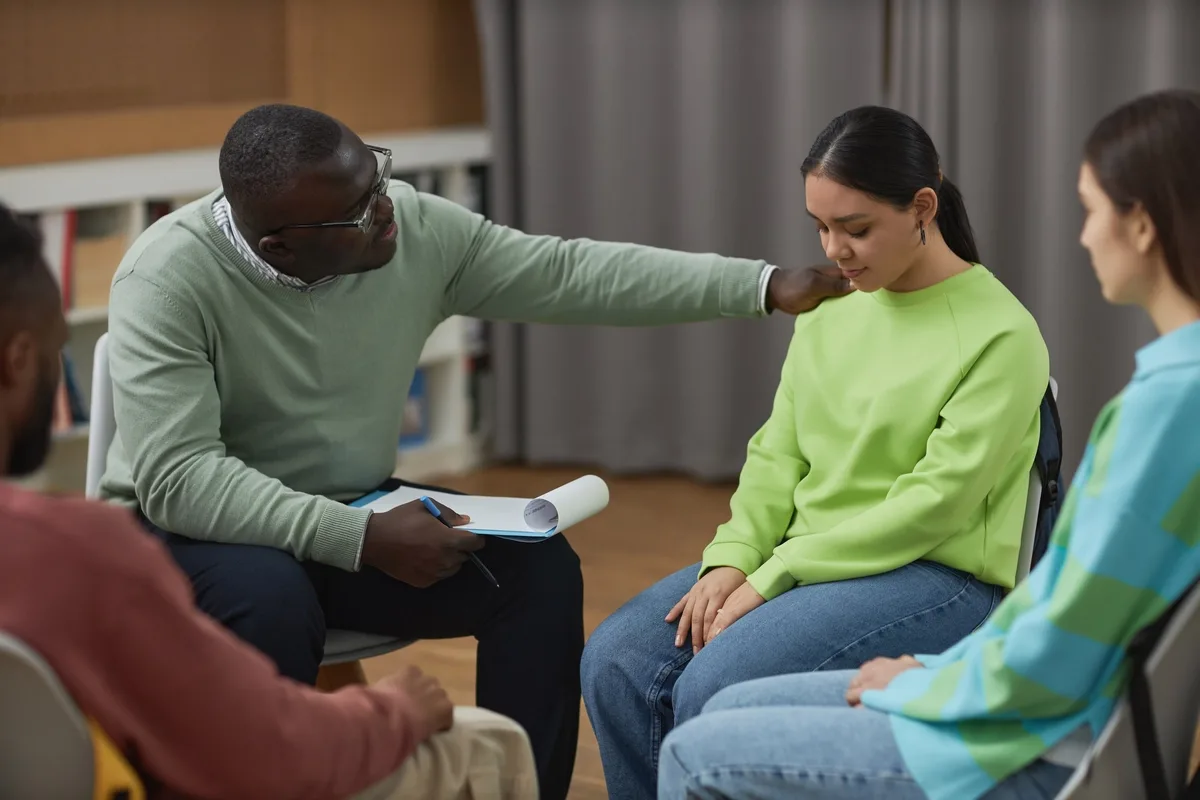24/7 Helpline:
(866) 899-111424/7 Helpline:
(866) 899-1114
Learn more about PTSD Treatment centers in Wagon Mound
PTSD Treatment in Other Cities

Other Insurance Options

PHCS Network

Absolute Total Care

United Health Care

EmblemHealth

Aetna

Providence

ComPsych

BHS | Behavioral Health Systems

American Behavioral

Evernorth

BlueShield

Meritain

Highmark

Regence

GEHA

Molina Healthcare

AllWell

MHNNet Behavioral Health

Optum

WellPoint

































































































